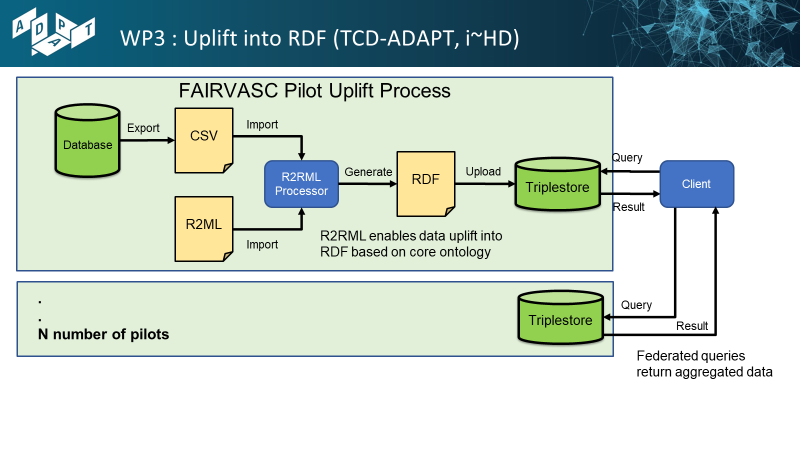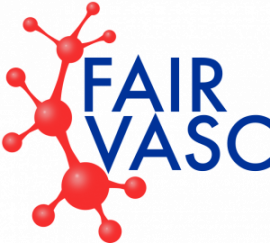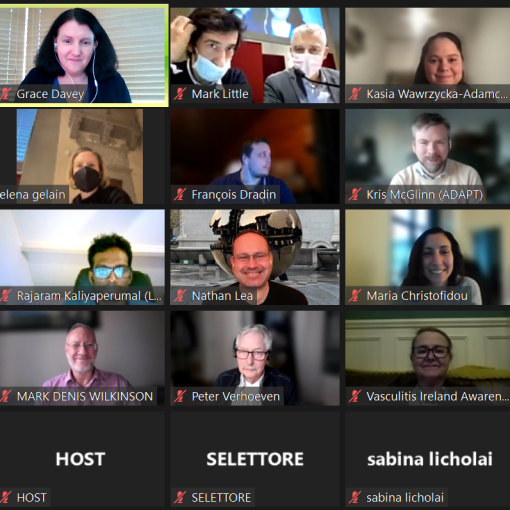On 11 Jan 2021, the FAIRVASC Consortium met for the second time since the project started. In our first Plenary meeting (delivered online due to the COVID-19 Pandemic), partners from 8 countries presented their progress on the FAIRVASC project. In particular updates were provided on the status of FAIRVASC registry profiling & data preparation, legal and ethical considerations, and the RDF uplift process which will initially map (‘uplift’) local data to a standardised RDF triple-store at each registry site, which will then be queried through the FAIRVASC Researcher Support User Interface.

Through detailed presentations, all partners summarized the significant achievements within each work package for the first seven months of the project. A registries technical handbook has been developed describing each registries metadata and the FAIRVASC registries are in the process of completing ERDRI registration. A comprehensive Information Governance resource is being produced that encompasses a project-wide Data Protection Impact Assessment (DPIA) and Code of Conduct, registry legal handbook, and registry legal metadata profiles.
A FAIRVASC Implementation Team (FIT) has been established and detailed training has been provided by the TCD-ADAPT team to technical personnel in each registry site in the technologies needed to implement FAIRVASC at each registry site, namely Linked Data, RDF, Prov-O, and SPARQL. Through interaction with PI’s (who developed the main experimental questions), and FIT team members, the initial core ontology has been developed based on a process of data harmonization. Local Triplestores have been set up at all sites. Sample federated queries upon dummy sample data are underway. Initial uplift mappings based on ontology and available data have been created for all pilot sites. As Triplestores are set up and Initial Federated Queries are now becoming available, the FAIRVASC Team can start to address the design of the Researcher Support User Interface.
Clinician researchers and IT personnel will co-design the functions and features of the user interface and a set of FAIRVASC SPARQL templates, that will allow users to remotely execute from a set list of queries and execute analyses upon selected registries, to allow access to the clinical results.
Preparations are also underway for the clustering and predictive modeling AAV research experiments to be carried out over the next 12 months at FAIRVASC partner LUND. Regular communication of project news and dissemination plans and strategies are being developed by partners JUK and GUH.
The FAIRVASC Consortium agreed that while in 2020 the COVID-19 pandemic has created challenges for the project partners, it has also demonstrated that the collaboration between different work packages and small subgroups is key to project progress.
The project team is looking forward to the next exciting stage of FAIRVASC!


